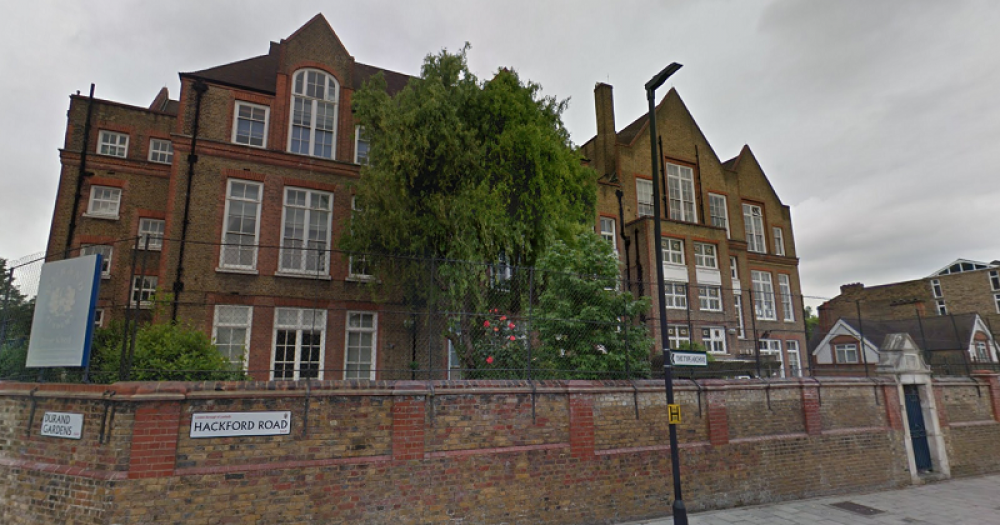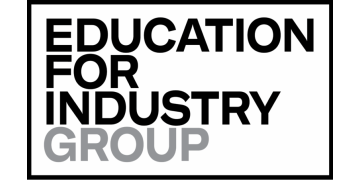Accounts of the troubled Durand Academy Trust show the organisation almost trebled its legal and professional fees in 2017.
According to the annual accounts of the chain, which runs Durand Academy in south London, legal and professional fees incurred by the trust increased from around £210,000 in 2016 to more than £620,000 in 2018. It suggests the trust spent more than £800,000 on legal assistance in just two years.
Much of the increased legal bill last year is likely to be down to the trust’s High Court action against Ofsted, which resulted in a damning inadequate grading for the academy being quashed.
The accounts also reveal the financial impact of the closure last September of the trust’s ambitious free boarding school project, with more than £130,000 paid out to staff made redundant.
The document, released this week, also shows that net assets held by the trust diminished substantially, from £1.4 million in 2016 to less than £250,000 in 2017. However, the trust still holds reserves of over £4 million.
Durand has been involved in a long-running dispute with various government agencies since 2014, when the National Audit Office raised concerns about related-party transactions and conflicts of interest linked to the running of the leisure facilities on the Lambeth school site.
In 2015, Sir Greg Martin, the then executive headteacher of Durand, faced a grilling by the parliamentary public accounts committee over his £420,000 salary, which included payouts from various private companies linked to the school.

Concerns over the running of the school also prompted an investigation by the Charity Commission, and the trust was subsequently issued with a financial notice to improve by the government’s schools funding body.
Martin resigned as head in August 2015, later becoming chair of Durand’s board, but problems continued to plague the trust and its boarding school, which ran up a deficit of £476,000 in its first year of operation.
The dispute between the trust and the government escalated when, in July 2016, it was issued with a notice of the government’s “provisional intention” to cut off its funding.
After refusing to cut ties with ex-head Martin, the trust was told in October 2016 that the termination of its funding agreement would proceed, shortly before the Charity Commission ruled that the contract between Martin’s company and the leisure centre linked to the school he used to run was “too generous”.
Early last year, Ofsted was forced to apologise after it published an “unapproved” report that rated Durand Academy as inadequate.
The publication of the document prompted a legal battle that only concluded in August last year, when Durand won a High Court bid to have the report quashed. In the meantime, Durand had been informed that its funding would be terminated in July 2018.
Martin finally resigned as chair at the end of August last year, and the future of the school remains in doubt as a new sponsor is sought, and after Ofsted appealed against the High Court ruling.








Although Sir Greg Martin resigned as a trustee of Durand Academies Trust, he remains as a member. Members appoint trustees. The two other members of DAT are Alan Davies and another company, Durand Education Trust.
Mark Adrian McLaughlin, who was DAT’s accounting officer, resigned from DAT on the same day as Sir Greg (31 August 2017). But he remains as trustee of Durand Education Trust.
It would appear that Sir Greg and Mark McLaughlin are still involved with Durand Academy.
The complicated arrangement between DAT, DET and another company called London Horizons (whose accounts are now consolidated into DET’s) was the subject of criticism from the Public Accounts Committee in February 2015. http://www.localschoolsnetwork.org.uk/2015/02/what-links-school-admissions-pixies-and-a-semi-nude
ADDENDUM to above: McLaughlin is described as Durand’s head on the DfE school performance tables.
I read your article, and unfortunately your comments below it. Most of the time your articles are well written and, although I disagree with a lot of your positions, I understand and appreciate where you are coming from.
But when I read comments from you such as “most papers loath comprehensive education, state education in general and teachers” I despair.
Do you really think that most papers loath teachers? That they loath state education? Come on.
It’s that sort of bunker mentality that results in people taking such stridently confrontational positions, hurling insults both professional and personal at each other from the comfort of their ideologically unshakable towers and refusing to accept that anyone from “the other side” could have anything to say that might be worth listening to.
We all have a voice that deserves to be heard, even Bubs with their “off the cuff comments”(!), and painting the majority of the media in this way doesn’t make you look as rational and objective as you normally are …
Mark – perhaps ‘loath’ was a little OTT, but popular papers such as the Daily Mail, Express, Telegraph constantly run articles denigrating state education in the UK, comprehensive schools (they’re definitely pro-selection) and characterise the education ‘establishment’, unions and teachers as members of the Blob. And it’s not just these papers, but media such as the BBC, which lazily churn DfE press releases without checking.
It was the Mail’s headline ‘Travesty of our stagnating schools’ in December 2010 which woke me from retirement to writing about education in England. This was my first LSN article – a blow-by-blow critique of the Mail article. http://www.localschoolsnetwork.org.uk/2010/12/state-education-suffers-from-biased-media-coverage
I find it hard to defend the Daily Mail on almost anything, so I won’t try there. At the risk of easy cliche, they are the Katie Hopkins of the media world – spouting deliberately objectionable content simply to be noticed.
Equally I’m not sure if many people take the Daily Express seriously either (smaller circulation than the Daily Star).
I would query your reference to the Telegraph. Whilst I would agree that they instinctively sit on the right side of the political divide and will defend independent education I think saying that as an organisation they “loath” or have any other organised strong antipathy to state education and teachers is just blinkered and doesn’t reflect reality.
What about other papers – you refer in your LSN piece to the Guardian, but what about the Daily Mirror, the i, Metro, Evening Standard and the Times and the Sun (not that I’m saying the last two are left wing!)
I’m not aware of any papers, including the above, routinely using references to “the Blob” without linking such term to Michael Gove and it being clear such term came from him.
Mark – whether the papers linked the term ‘Blob’ to Gove or not is immaterial. They still used it.
Try an internet search linking names of papers with ‘the Blob education’ and you’re likely to find examples – too many for me to include here as the comment would be stuck in moderation. But here’s one from the Telegraph just a couple of days ago. http://www.telegraph.co.uk/news/2018/01/08/dear-education-secretary-blob-get-dont-let/
As I said above, perhaps ‘loath’ was too strong. But I still stand by my comment that the majority of UK national papers have a right-wing stance and display an anti-teacher union, anti-comprehensive school and anti-teacher bias unless the teacher is hard-line, ‘no excuses’, ‘traditional’ (ie not ‘progressive’ or ‘child-centred’ – these are portrayed as wishy-washy concepts) and support Govian reforms.
The Times is not exempt: Gove, a friend of Murdoch, still writes for the paper – not exclusively about education, although a couple of Times’ editorials have in the past sounded like Gove parodies. His book reviews are very good.
The Sun – another Murdoch paper – heavily pro-grammar schools.
The Independent – less anti-state schools.
The Mirror – pro state education and very anti-Gove. One example from 2015: ‘Michael Gove turned teachers into enemies of the state rather than the guardians of excellent state education’.
The Metro and Evening Standard – as these are provided free at railway stations and other such venues, they can’t really be described as ‘national papers’).
This diversion has rather distracted attention from the Durand situation.
Oh come on, of course it’s material. If a paper stated that Donald Trump called all Mexicans rapists then that’s a point made about Donald Trump, and not the paper’s opinion.
The article you link to referred to people “who made up what Michael Gove called “The Blob”.” The headline was for effect and is hardly ‘using the term’ in a serious way.
Knowing a journalist who works at the i, who is the most strident supporter of comprehensive education I know, I am looking forward to telling him his paper is “less anti-state schools”. His reaction will be priceless (and totally unprintable).
The Metro has the third highest circulation of any newspaper and the Evening Standard the fourth highest. They might not be national but in terms of reach they can’t be dismissed.
What about the media organisation with, I would say, the greatest reach in the UK – the BBC. Do they have a right-wing stance too?
Durand Academy Trust is clearly a very messy situation which should act as an example of how academy trusts should not be run.
It seems clear to me that what we need is an independent review of what happened and what went wrong. Nothing massive, time-consuming and expensive – but an expert objective review resulting in something that can be used to ensure this doesn’t happen again.
The problem I foresee is that if this does happen it will be jumped upon by opponents of academies and used as a stick to attack the entire programme.
I don’t know why this only seems to happen in this sector – when various reviews have found the Social Services departments at certain Councils were totally unfit for purpose it was taken as a criticisms of those specific Councils, not all Councils. I don’t remember people saying all Councils should be removed from the provision of social services.
Given that numerous academy trusts don’t have the issues that arose within DAT, without wishing to prejudice any possible future review(!), it seems more likely that the problems related to the specific individuals.
Mark – you’re right that the DAT situation is complex. And it’s already been looked at by PAC, the EFA and the Charities Commission.
And you’re right that most academy trusts don’t have issues.
But the number of academy trusts (which far exceeds the number of LAs) makes it difficult for the DfE to monitor them all. This makes it easier for individual trusts to bend the rules and benefit personally from involvement with academy trusts.
It would help if related party transactions were banned as Margaret Hodge recommended when PAC chair.
Another point to remember is that Durand, like Perry Beeches, Kings Science Academy and Cuckoo Hall were praised by former Ed Sec Michael Gove as examples for others to follow. Sajid Raza, jailed for fraud at KSA, even tried to cite his closeness to Gove as a way of avoiding EFA probing. And Gove was accused of sitting on the adverse report about KSA until forced to reveal it by Newsnight. http://www.localschoolsnetwork.org.uk/2013/10/trouble-up-north-as-flagship-free-school-is-buffeted-by-financial-rocks-gove-accused-of-fraud-cover-up
The four named schools, and others feted by Gove, have since been found to have breached academy financial rules. Not particularly good examples, then.
I don’t think the EFA or PAC qualify as independent – both have too much vested interest to be truly objective, as is any body with political connections. I have a bit more faith in the Charity Commission, but any review they carry out is necessarily limited in scope.
The review should be carried out by someone with no interest in the outcome, and with no axe to grind one way or t’other.